
‘It’s where we come from’: the River People in Mexico left without a river
The demise of the Colorado River has destroyed the social fabric of the Cucap tribe and is partly to blame for its population decline
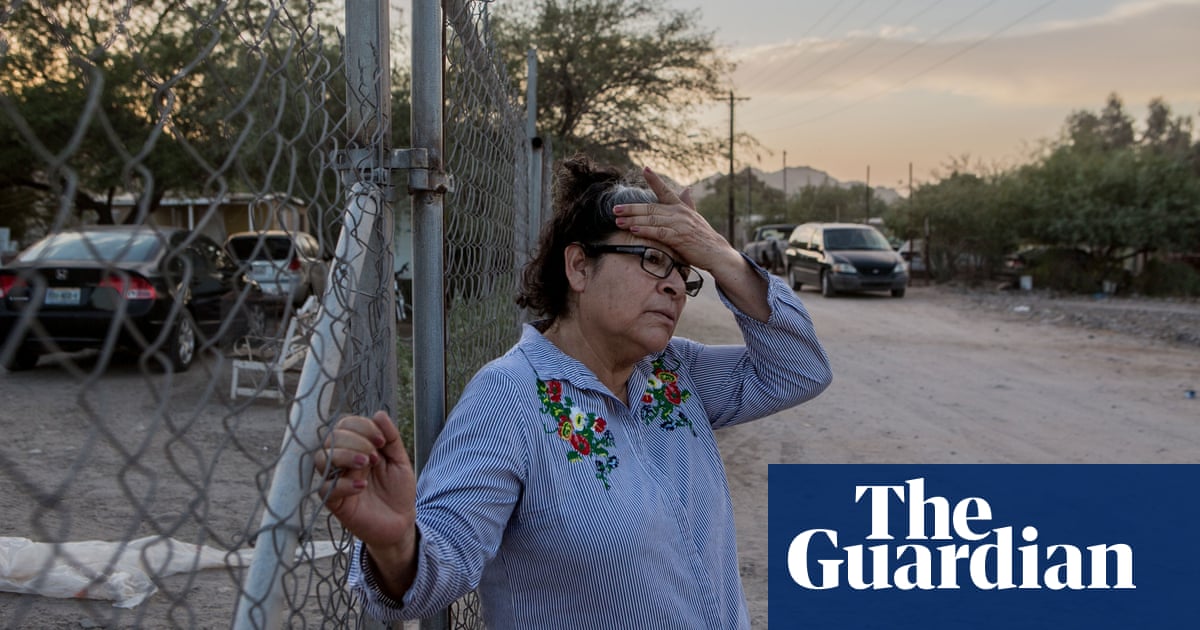
They are called the River People, but they no longer have a river.
Inocencia Gonzlez is the traditional tribal elder of the Cucap the River People in northern Mexico. She spends her days beading traditional chaquira jewellery to sell at the community museum, and reminiscing about happier times spent fishing for tilapia and mullet.
Gonzlez grew up in the Colorado River delta when the mighty waterway and lakes provided abundant food, water, medicines and spiritual nourishment for her people to thrive.
It was on the river that Gonzlez, now 82, taught her children, just like her parents and grandparents taught her, to fish with canoes and traps made from willow trees which flourished on the riverbanks.
Now, the river stops at the US-Mexico border and the lakes are dry and native vegetation is confined to reforestation projects. The only fish come from irrigation canals and the nearby River Hardy a polluted 16-mile tributary of the Colorado sustained by agricultural runoff and a water treatment plant.
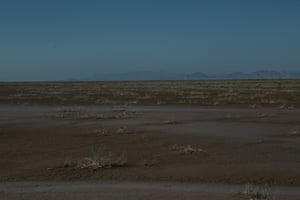
As the Guardian reported yesterday, the Colorado is the most regulated waterway in the Americas, supplying water to cities, farmlands and national parks across seven US states. But it is dammed at the international border and the US releases an allotted amount, which is mostly diverted into irrigation canals for farmland. The Colorado itself is reduced to puddles, a taunting sight during the summer months when temperatures can reach 50C (122F).
I miss the river, its where we come from, its who we are, said Gonzlez, while chain smoking outside her modest home in El Mayor, Baja California. Now, everything has changed, the youngsters cant swim in the river and weve no choice but to fish in polluted water.
At home next door, grandson Jaziel Soto Torres, 25, has bandages wrapped around both legs, to cover itchy blisters that erupted after wading in the murky River Hardy to repair a footbridge.
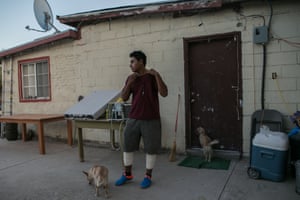
The 1944 binational river treaty
The Cucap are one of Baja Californias five native tribes, and are descended from the hunter gatherer Yuman people who migrated here around 1000BC.
In the 1800s, western colonizers documented 5,000 to 6,000 nomadic Cucaps, who organised in clans and followed the turbulent river to fish and cultivate the fertile banks of the Colorado delta.
Now, official figures suggest fewer than 400 remain in Mexico and around a thousand in Yuma, Arizona the Cucap were among several native tribes divided by the Mexico-US war and 1848 border treaty. The population decline is partially blamed on the demise of the river.
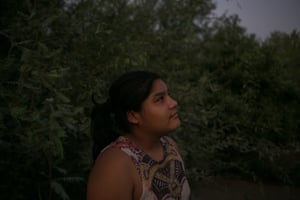
A 1944 binational river treaty guaranteed Mexico 1.5m acres-feet of water annually, all of it destined for agriculture. Today, at least 85% still goes to farmers. The agreementfailed to consider the rights of the Cucap people and their primordial relationship with the river. As a result, traditional riverine ceremonies, medicines, fruits and grains, along with native trees and shrubs used to make houses, boats and clothes, are now scarce.
Losing the river, argue Cucap leaders, has destroyed the social fabric of the community: the language is close to extinction, spiritual ceremonies are forgotten, and youngsters are forced to migrate.
People abandoned the community because theres no river, no fish and no life here. Its cost us our language, culture and identity, said Antonia Gonzlez, Inocencias daughter who runs the museum.
In Arizona, the tribe, known as the Cocopah, has federally guaranteed rights to water from the Colorado, though there, too, traditional riverine customs and foods have radically declined.
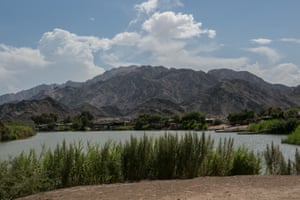
Were not used to living like this
El Mayor is a dusty, poor neighborhood founded after scores of riverside households were scattered when the river burst its banks in 1979. US dams, brimming with excessive rainfall and melting snow, had released huge amounts of water, and Mexican flood defences were ill-equipped to cope.
The Cucap were badly affected, and forced to relocate from dispersed rural homesteads to tightly packed neighbourhoods. El Mayor has the biggest diaspora, and conditions remain basic: there is a hodgepodge of improvised houses and old American trailers divided by sandy gravelled roads, barbed-wire fences, and drooping salty pines.
The community has been blighted by alcohol and drug abuse, crystal meth in particular, as well as alarming rates of diabetes, asthma and cancer. Roofs provided by the government in 1979 were riddled with asbestos and were left in place for three decades.
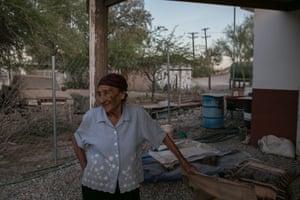
Were not used to living like this, and being so close together has generated jealousies and divisions that never existed before. The biggest threat we face is internal conflict, added Antonia Gonzlez, who teaches teenagers Cucap folk stories, dance and songs in an effort to instill traditional values linked to mother nature.
Nevertheless, the flood years werent all bad, said tribal elder Inocencia. The glut of water meant the river flowed and the Laguna Salada, a vast sandy depression west of El Mayor, filled with freshwater and high tides from the Gulf of California, resulting in plentiful fish.
The lagoon dried up when the manmade floods subsided, forcing the Cucap to start fishing in the open sea for sea bass known as the croaker for its deafening mating call which congregate in the Sea of Cortez separating the slender Baja California peninsula from the Mexican mainland, between February and May.
It became an economic lifeline for the Cucap, but croaker stocks are declining as a result of illegal fishing, corruption and the climate crisis, posing yet another threat to the Cucap.
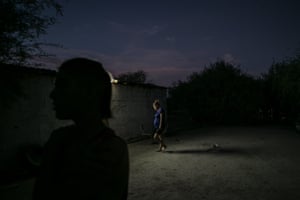
This year, Francisco Javier Gonzales, who runs El Mayors only shop, is indebted after failing to recoup the money spent on petrol and equipment for the third consecutive croaker season.
The [1944] treaty was catastrophic for us. We were never consulted and no one has apologized or compensated us for the way our lives have been drastically changed by losing the river. The Cucap are river people, not sea people, but now were being forced from the sea as well.
But there is some cause for optimism. Conservation efforts, which includes dredging sections of the dry riverbed and reforestation are helping tidal waves from the gulf encroach further into the river delta to create small, glistening wetlands that attract hungry pelicans and egrets. For the Cucap, restoring these natural aquatic connections could also help save their way of life.
Ins Hurtado, 52, a Cucap leader, said: The wetlands bring fish, and the fish are what sustain us. We have to protect them.
To contact Nina Lakhani, the Guardians new environmental justice reporter, e-mail nina.lakhani@theguardian.com.
Read more: https://www.theguardian.com/environment/2019/oct/22/mexico-colorado-river-people-left-without-river
